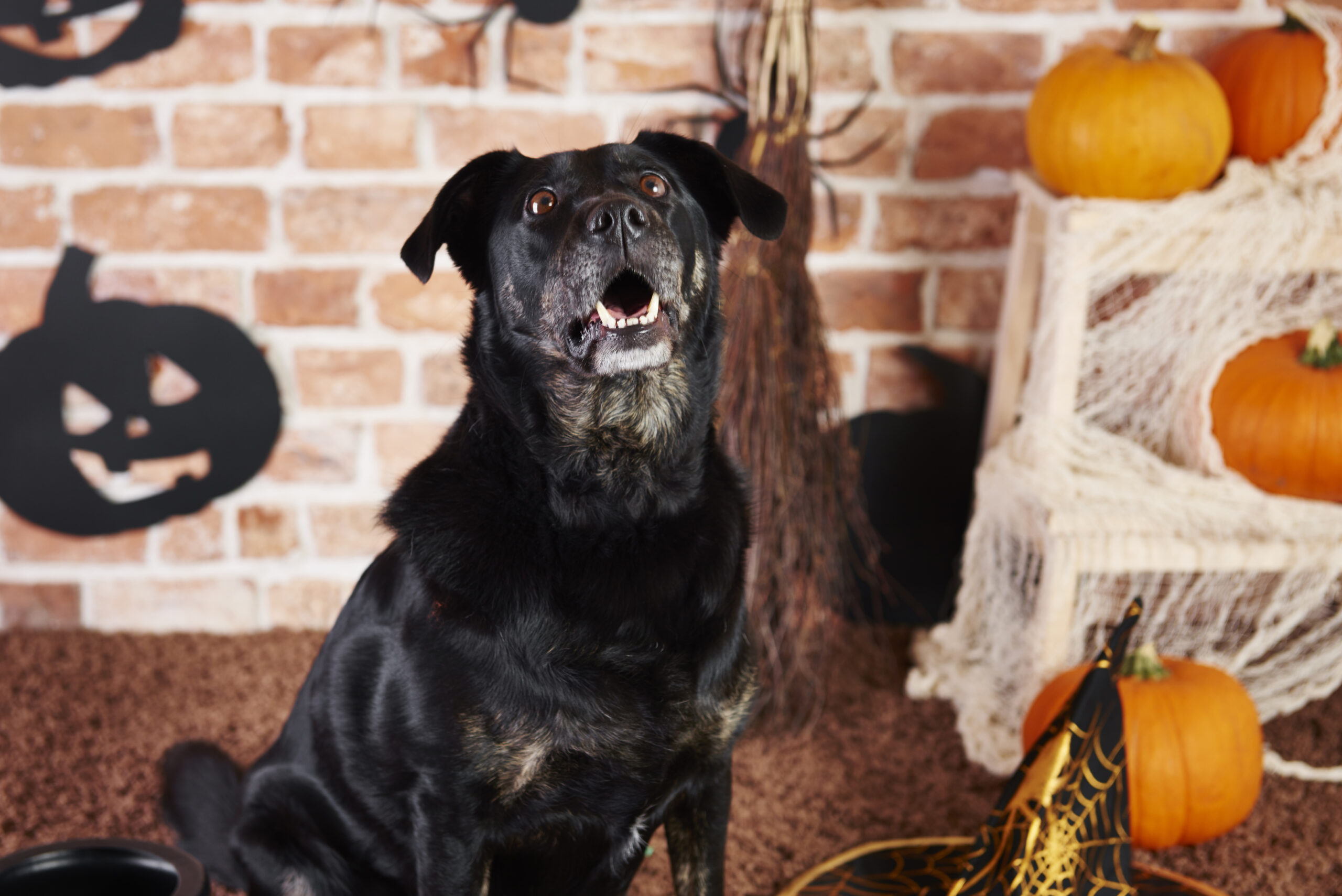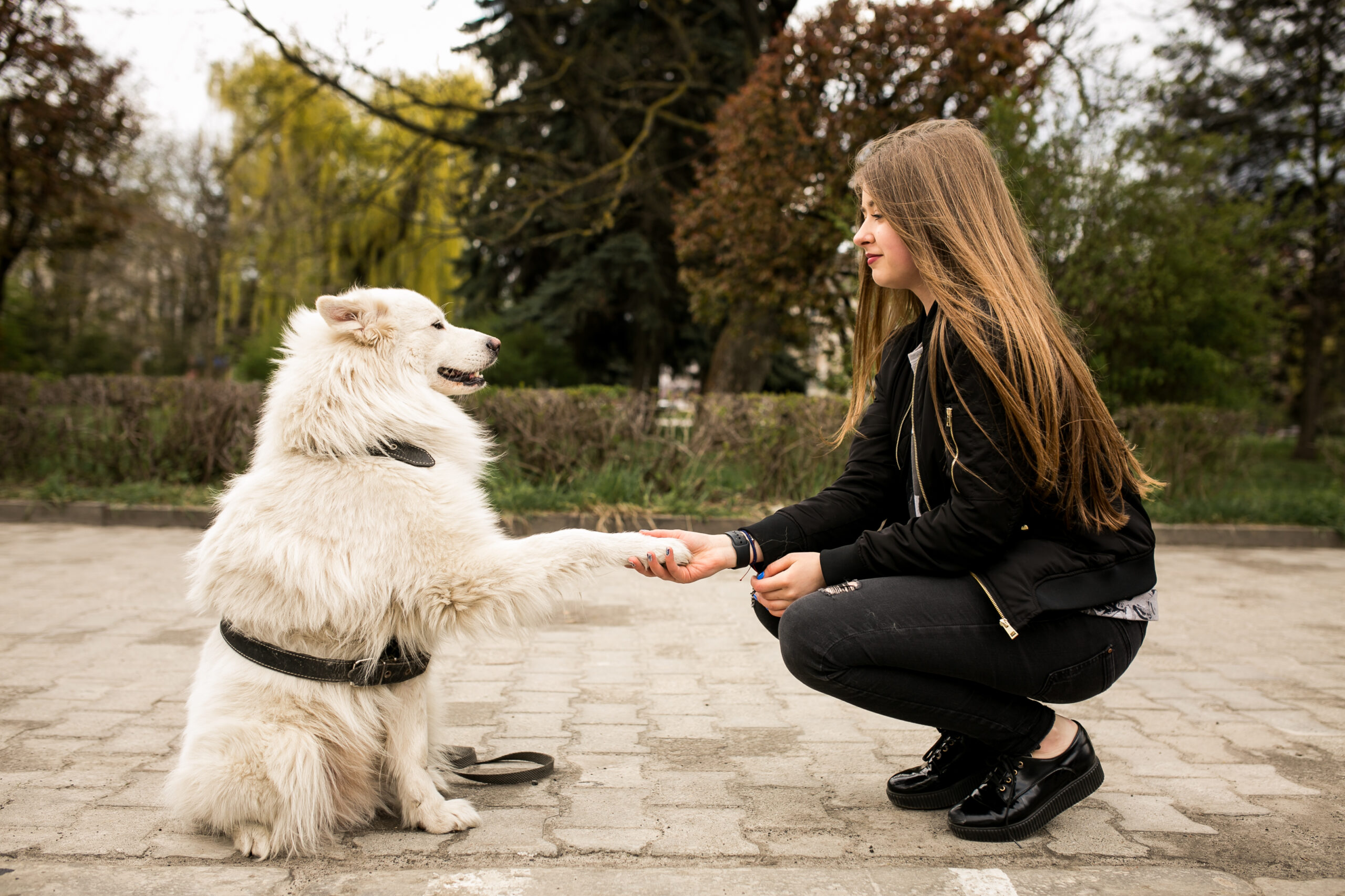Introduction
Have you ever noticed your dog suddenly stop and stare into an empty corner, growl at thin air, or act as if they are following something invisible? Many pet owners believe their dogs can see ghosts or spirits. Some even report eerie incidents where their dogs refuse to enter certain rooms, bark at nothing, or show signs of fear when there’s nothing visible to the human eye.
But is there any truth to this? Can dogs actually see ghosts, spirits, or supernatural entities, or is there a scientific explanation for this behavior? In this article, we’ll dive deep into science, myths, and possible reasons why dogs might appear to sense something beyond our perception.
1. A Dog’s Senses Are More Powerful Than Ours
To understand whether dogs can see ghosts, we first need to understand how they experience the world differently from humans. Dogs rely on their senses of smell, hearing, and vision in ways we can’t even imagine.
A. Super-Sensitive Smell
Dogs have 300 million scent receptors in their noses, while humans only have about 5 million. Their sense of smell is so strong that they can detect:
- Human emotions like fear, happiness, and sadness through subtle chemical changes in sweat and breath.
- Medical conditions such as cancer, low blood sugar, or oncoming seizures.
- Scent trails left behind hours or even days ago.
Could it be that when a dog is staring at an empty space, they are actually detecting a lingering scent from a person or animal that was once there?
B. Superior Hearing
Dogs can hear frequencies up to 65,000 Hz, while humans can only hear up to 20,000 Hz. This means they can pick up sounds that we are completely unaware of, such as:
- Rodents or insects moving behind walls
- Distant footsteps or voices that we can’t hear
- Subtle electrical noises from appliances
A dog barking at “nothing” might actually be reacting to a noise we simply cannot hear.
C. Night Vision and Movement Detection
Dogs have better night vision than humans due to a higher number of rod cells in their eyes. They also have a tapetum lucidum, a layer behind the retina that reflects light, helping them see in the dark.
Additionally, dogs are extremely sensitive to motion. They can detect the slightest movement, even in dim light. This might explain why they sometimes focus on an area where we see nothing—perhaps they’ve detected a tiny shadow, flickering light, or slight movement that we overlooked.
2. Why Do Dogs Stare at “Nothing”? Possible Explanations
Many pet owners report their dogs staring at walls, barking at empty spaces, or following something invisible with their eyes. While this behavior may seem spooky, there are several logical explanations:
A. They Smell Something We Can’t
Because of their powerful noses, dogs may detect lingering scents of people, animals, or even decaying organic matter that we cannot smell. If your dog is sniffing the air and staring at a particular spot, they might just be picking up a scent trail from the past.
B. They Hear High-Frequency Noises
Dogs can hear high-pitched sounds from distant sources. A dog barking at the corner of a room might actually be reacting to a faraway siren, the buzz of an electronic device, or even an animal moving behind the walls.
C. Reflections, Shadows, and Moving Lights
Some dogs get fascinated by reflections, moving shadows, or changing light conditions. A dog suddenly becoming alert might have noticed a faint light reflection, a shadow from a tree moving outside, or even a bug flying across the room.
D. Changes in Air Pressure or Temperature
Dogs have been observed acting strangely before natural disasters like earthquakes and storms. Some scientists believe they can sense changes in air pressure, static electricity, and vibrations in the ground before humans do.
E. Medical Conditions (Neurological or Cognitive Issues)
In some cases, dogs that stare at nothing may be experiencing medical conditions such as:
- Canine Cognitive Dysfunction (CCD) – Similar to Alzheimer’s in humans, older dogs may develop confusion or hallucinations.
- Partial Seizures – Some seizures don’t cause full convulsions but may make a dog appear as if they’re staring at something invisible.
If your dog frequently acts strange without explanation, a vet check-up may be a good idea.
3. Do Dogs React to Supernatural Energy?
Despite scientific explanations, many pet owners still believe that dogs react to supernatural forces. Stories of dogs acting fearful, growling, or barking at unseen entities exist in many cultures.
A. Historical and Folklore Beliefs
Throughout history, dogs have been associated with spirituality, ghosts, and the afterlife:
- Ancient Egyptians believed dogs guided souls to the afterlife.
- In Chinese folklore, dogs are thought to ward off evil spirits.
- In Western ghost stories, dogs are often depicted as sensing paranormal activity before humans do.
B. Paranormal Encounters and Anecdotal Stories
Many pet owners claim their dogs react strongly in places believed to be haunted. Some common reports include:
- Dogs refusing to enter certain rooms
- Barking or growling at unseen entities
- Acting scared or distressed for no reason
While there is no scientific proof that ghosts exist, some believe dogs might be sensitive to energies that humans can’t detect.
4. What Should You Do If Your Dog Acts Strange?
If your dog frequently stares at empty spaces or reacts to “nothing,” consider these steps:
✅ Rule out logical explanations – Check for sounds, shadows, smells, or reflections.
✅ Observe body language – A relaxed dog is likely just curious, while a scared dog might be reacting to something real (or imagined).
✅ Monitor health – If your dog repeatedly stares or behaves oddly, consult a vet to rule out medical issues.
✅ Comfort them – If they seem anxious, reassure them with a calm voice and distractions like toys or treats.
If you suspect your house has paranormal activity, you can try:
- Recording their behavior on video to analyze later.
- Bringing in an expert (if you believe in the supernatural).
- Smudging your home (if you follow spiritual cleansing practices).
Conclusion: Do Dogs Really See Ghosts?
While science suggests dogs are reacting to scent, sound, movement, or medical conditions, the mystery remains unsolved. Whether or not you believe in ghosts, dogs have a unique way of sensing their environment, often detecting things that humans overlook.
So next time your dog stares at an empty hallway, wags their tail at nothing, or growls at a dark corner, is it just their imagination… or is there something more? 👻🐶✨



